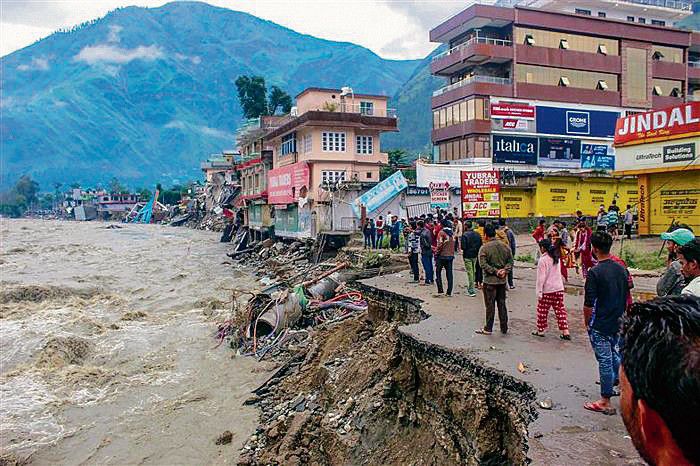Global strategies for climate change flawed
New Delhi, July 22
The Economic Survey 2023-24 has termed the global strategies for climate change as flawed and not universally applicable.
Union Minister for Finance and Corporate Affairs Nirmala Sitharaman said in Parliament that adopting the practices of the West could prove to be disastrous for India where culture, economy and societal norms are already intertwined with the environment.
This is significant as India which heavily relies on coal for energy needs was not in favour to completely phase out coal, a demand pushed by developed countries.
“A one-size-fits-all approach will not work, and developing countries need to be free to choose their own pathways since they are tasked with balancing developmental goals with meaningful climate action,” the report said.
The report said that the global pursuit of energy-guzzling technologies such as Artificial Intelligence and mining rare earth minerals in large quantities has only contributed to higher fossil fuel consumption which is at odds with the objective of mitigation of climate change.
“The Western approach does not seek to address the root of the problem, i.e. overconsumption, but rather chooses to substitute the means to achieve overconsumption,” it said. The report said that India, despite significant strides in climate action, often faces criticism for not aligning with Western solutions.
The report said that the process of meat production adopted in developed countries presents credible food security risks and a threat of permanently degrading the land, water and natural resources critical for our survival. The report said that rather than adopting the Western concept of nucleated families which puts stress on land, the Indian concept of multi-generational households is sustainable. The survey upholds the tenets of PM’s vision of Mission ‘LiFE’.
“The adoption of the kinds of actions and measures targeted by the LiFE initiative worldwide would reduce annual global carbon di-oxide emissions by more than 2 billion tonnes in 2030,” the report said.









